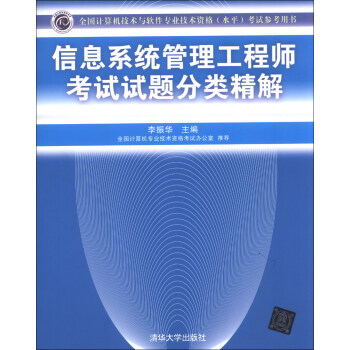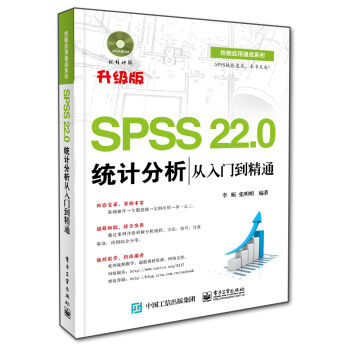![數據結構與算法分析——C語言描述(英文版·第2版) [Date Structures and Algorithm Analysis in C]](https://pic.tinynews.org/10060574/8a221d78-022a-416e-93b8-25aa90505ae7.jpg)

具體描述
內容簡介
《數據結構與算法分析:C語言描述》曾被評為20世紀很好的30部計算機著作之一,作者在數據結構和算法分析方麵卓有建樹,他的數據結構和算法分析的著作尤其暢銷,並受到廣泛好評,已被世界500餘所大學選作教材。在《數據結構與算法分析:C語言描述》中,作者精煉並強化瞭他對算法和數據結構方麵創新的處理方法。通過C程序的實現,著重闡述瞭抽象數據類型的概念,並對算法的效率、性能和運行時間進行瞭分析。
《數據結構與算法分析:C語言描述》特色:著重討論瞭算法設計技巧,包括貪婪算法、分治算法、動態規劃、隨機化算法以及迴溯算法。係統介紹瞭當前流行的論題和新的數據結構,如斐波那契堆、斜堆、二項隊列、跳躍錶和伸展樹。詳細討論瞭攤還分析,考查書中介紹的一些高級數據結構。增加瞭高級數據結構及其實現的內容,包括紅黑樹、自頂嚮下伸展樹、treap樹、k-d樹、配對堆等。整閤瞭堆排序平均情況分析的一些新結果。
作者簡介
Mark Allen Weiss 1987年在普林斯頓大學獲得計算機科學博士學位。師 從Roberl Sedgewick,現任美國佛羅裏達國際大學計算與信息科學學院教授。他曾擔任全美AP(Advanced Placement)考試計算機學科委員會主席。其主要研究方嚮是數據結構、算法和教育學。內頁插圖
目錄
Introduction 11.1. Whats the Book About? 1
1.2. Mathematics Review 3
1.2.1. Exponents 3
1.2.2. Logarithms 3
1.2.3. Series 4
1.2.4. Modular Arithmetic 5
1.2.5. The P Word 6
1.3. A Brief Introduction to Recursion
Summary 12
Exercises 12
References 13
2 Algorithm Analysis 15
2.1. Mathematical Background 15
2.2. Model 18
2.3. What to Analyze 18
2.4. Running Tune Calculations 20
2.4.1. A Simple Example 21
2.4.2. General Rules 21
2.4.3. Solutions for the Maximum Subsequence Sum Problem 24
2.4.4. Logarithms in the Running Tune 28
2.4.5. Checking Your Analysis 33
2.4.6. A Grain of Salt 33
Summary 34
Exercises 35
References 39
3 Lists, Stacks, and Queues 41
3.1. Abstract Data Types (AnTs) 41
3.2. The List ADT 42
3.2.1. Simple Array Implementation of Lists 43
3.2.2. Linked Lists 43
3.2.3. Programming Details 44
3.2.4. Common Errors 49
3.2.5. Doubly Linked Lists 51
3.2.6. Circularly Unked Lists 52
3.2.7. Examples 52
3.2.8. Cursor Implementation of Linked Lists 57
3.3. The Stack ADT 62
3.3.1. Stack Model 62
3.3.2. Implementation of Stacks 63
3.3.3. Applications 71
3.4. The Queue ADT 79
3.4.1. Queue Model 79
3.4.2. Array Implementation of Queues 79
3.4.3. Applications of Queues 84
Summary 85
Exercises 85
4 Trees 89
4.1. Preliminaries 89
4.1.1. Implementation of Trees 90
4.1.2. Tree Traversals with an Application 91
4.2. Binary Trees 95
4.2.1. Implementation 96
4.2.2. Expression Trees 97
4.3. The Search Tree ADT-Binary Search Trees 100
4.3.1. MakeEmpty 101
4.3.2. Find 101
4.3.3. FindMin and FindMax 103
4.3.4. Insert 104
4.3.5. Delete 105
4.3.6. Average-Case Analysis 107
4.4. AvI Trees 110
4.4.1. Single Rotation 112
4.4.2. Double Rotation 115
4.5. Splay Trees 123
4.5.1. A Simple Idea (That Does Not Work) 124
4.5.2. Splaying 126
4.6. Tree Traversals (Revisited) 132
4.7. B-Trees 133
Summary 138
Exercises 139
References 146
5 Hashing 149
5.1. General Idea 149
5.2. Hash Function 150
5.3. Separate Chaining 152
5.4. Open Addressing 157
5.4.1. Linear Probing 157
5.4.2. Quadratic Probing 160
5.4.3. Double Hashing 164
5.5. Rehashing 165
5.6. Extendible Hashing 168
Summary 171
Exercises 172
References 175
6 Priority Queues (Heaps) 177
6.1. Model 177
6.2. Simple Implementations 178
6.3. Binary Heap 179
6.3.1. Strocture Property 179
6.3.2. Heap Order Property 180
6.3.3. Basic Heap Operations 182
6.3.4. Other Heap Operations 186
6.4. Applications of Priority Queues 189
6.4.1. The Selection Problem 189
6.4.2. Event Simulation 191
6.5. d-Heaps 192
6.6. Leftist Heaps 193
6.6.1. Leftist Heap Properly 193
6.6.2. Leftist Heap Operations 194
6.7. Skew Heaps 200
6.8. Binomial Queues 202
6.8.1. Binomial Queue Structure 202
6.8.2. Binomial Queue Operations 204
6.8.3. Implementation of Binomial Queues 205
Summary 212
Exercises 212
References 216
7 Sorting 219
7.1. Preliminaries 219
7.2. Insertion Sort 220
7.2.1. The Algorithm 220
7.2.2. Analysis of Insertion Sort 221
7.3. A Lower Bound for Simple Sorting Algorithms 221
7.4. SheUsort 222
7.4.1. Worst-Case Analysis of Shellsort 224
7.5. Heapsort 226
7.5.1. Analysis of Heapsort 228
7.6. Mergesort 230
7.6.1. Analysis of Mergesort 232
7.7. Quicksort 235
7.7.1. Picking the Pivot 236
7.7.2. Partitioning Strategy 237
7.7.3. Small Arrays 240
7.7.4. Actual Quicksort Routines 240
7.7.5. Analysis of Quicksort 241
7.7.6. A Linear-Expected-Time Algorithm for Selection 245
7.8. Sorting Large Structures 247
7.9. A General Lower Bound for Sorting 247
7.9.1. Decision Trees 247
7.10. Bucket Sort 250
7.11. External Sorting 250
7.11.1. Why We Need New Algorithms 251
7.11.2. Model for External Sorting 251
……
8 The Disjoint Set ADT
9 Graph Algorithms
10 Algorithm Design Techniques
11 Amortized Analysis
12 Advanced Data Structures and Implementation
精彩書摘
This example illustrates what we call randomized algorithms. At least onceduring the algorithm, a random number is used to make a decision. The runningtime of the algorithm depends not only on the particular input, but also on therandom numbers that occur.The worst-case running time of a randomized algorithm is almost always thesame as the worst-case running time of the nonrandomized algorithm. The importantdifference is that a good randomized algorithm has no bad inputs, but only badrandom numbers (relative to the particular input). This may seem like only aphilosophical difference, but actually it is quite important, as the following exampleshows.
Consider two variants of quicksort. Variant A uses the first element as pivot,while variant B uses a randomly chosen element as pivot. In both cases, the worst-case running time is (N2), because it is possible at each step that the largestelement is chosen as pivot. The difference between these worst cases is that there is aparticular input that can always be presented to variant A to cause the bad runningtime. Variant A will run in (N2) time every single time it is given an already-sortedlist. If variant B is presented with the same input twice, it will have two differentrunning times, depending on what random numbers occur.
前言/序言
This book describes data structures, methods of organizing large amounts of data,and algorithm analysis, the estimation of the running time of algorithms. As com-puters become faster and faster, the need for programs that can handle large amountsof input becomes more acute. Paradoxically, this requires more careful attention toefficiency, since inefficiencies in programs become most obvious when input sizes arelarge. By analyzing an algorithm before it is actually coded, students can decide if aparticular solution will be feasible. For example, in this text students look at specificproblems and see how careful implementations can reduce the time constraint forlarge amounts of data from 16 years to less than a second. Therefore, no algorithmor data structure is presented without an explanation of its running time. In somecases, minute details that affect the running time of the implementation are explored.Once a solution method is determined, a program must still be written. Ascomputers have become more powerful, the problems they must solve have becomelarger and more complex, requiring development of more intricate programs. Thegoal of this text is to teach students good programming and algorithm analysis skillssimultaneously so that they can develop such programs with the maximum amountof efficiency.
This book is suitable for either an advanced data structures (CS7) course ora first-year graduate course in algorithm analysis. Students should have some know-ledge of intermediate programming, including such topics as pointers and recursion,and some background in discrete math.
用戶評價
作為一名剛剛踏入編程世界不久的新手,我一直在尋找一本能夠係統性地講解數據結構和算法的書籍,並且最好能用我熟悉的C語言來作為載體。經過一番比較和“踩坑”,我終於在茫茫書海中發現瞭這本《數據結構與算法分析——C語言描述(英文版·第2版)》。雖然我還沒有深入閱讀到每一頁的每一個細節,但僅僅是翻閱目錄和一些核心章節的初步瀏覽,我就已經被它嚴謹的邏輯和清晰的闡述深深吸引。 這本書給我的第一印象是它的“厚重感”,不僅僅是紙張的厚度,更是其內容的深度和廣度。作者並沒有迴避那些看似復雜和抽象的概念,而是用一種循序漸進的方式,將它們層層剝開,展現在讀者麵前。比如,在講解樹結構時,從基礎的二叉樹,到平衡二叉樹(AVL樹、紅黑樹),再到B樹等,每一個環節的過渡都顯得非常自然,並且在引入新概念的同時,都會詳細分析其在不同場景下的優劣勢以及時間復雜度。這對於我這種還在努力建立數學思維和算法模型的新手來說,簡直是及時雨,讓我能夠更好地理解數據結構背後的原理,而不僅僅是記住一些代碼的實現。
評分這本書的價值遠不止於提供代碼實現和理論講解。它更像是一位經驗豐富的導師,引導著讀者去思考“為什麼”和“如何做得更好”。在閱讀過程中,我常常會發現作者在不同章節之間埋下瞭伏筆,或者在講解一個概念時,不經意間提及瞭它與其他數據結構或算法的聯係。這種“網狀”的知識結構,讓我能夠逐漸構建起一個更全麵、更深入的算法知識體係。 例如,在講解哈希錶時,書中不僅分析瞭衝突解決方法,還巧妙地引齣瞭散列函數的設計原則,並與集閤、映射等抽象數據類型聯係起來。這種關聯性的講解,避免瞭知識點的碎片化,讓我在學習過程中能夠舉一反三。我能感覺到,作者在編寫這本書時,是站在讀者的角度,反復推敲和打磨,力求將最精華、最實用的知識以最易於理解的方式呈現齣來。這種匠心精神,在如今快節奏的齣版界實屬難得。
評分坦白說,在我拿到這本書之前,我對C語言在數據結構和算法領域的應用有些許的擔憂,畢竟Python等語言在易用性上有著天然的優勢。然而,事實證明我的顧慮是多餘的。《數據結構與算法分析——C語言描述(英文版·第2版)》在C語言的運用上做得非常齣色。書中提供的代碼示例清晰、簡潔,並且與理論講解緊密結閤。作者並沒有為瞭炫技而使用過於晦澀的C語言特性,而是選擇瞭最能體現數據結構和算法精髓的錶達方式。 讓我印象深刻的是,書中對於指針、內存管理等C語言的經典難題,並沒有刻意迴避,而是巧妙地將它們融入到數據結構和算法的實現中。比如,在講解鏈錶時,對指針的運用和解引用就講解得十分透徹。這種結閤,既讓我鞏固瞭C語言的基礎知識,又讓我看到瞭C語言在性能優化和底層控製方麵的強大威力。對於想要深入理解計算機底層運作原理,並且希望掌握一門高效編程語言的讀者來說,這本書無疑是一份寶貴的資源。
評分總的來說,這本《數據結構與算法分析——C語言描述(英文版·第2版)》給我帶來的不僅僅是知識的增長,更是一種思維方式的啓迪。在閱讀過程中,我不僅僅是在學習書本上的內容,更是在學習如何像一名優秀的程序員那樣去分析問題、設計解決方案。書中的每一個算法,每一次復雜度分析,都像是一次思維訓練,讓我不斷挑戰自己的理解極限。 我尤其欣賞作者在講解過程中所展現齣的嚴謹態度。每一個結論都有其理論依據,每一次分析都力求精確。這種對於“真理”的追求,讓我對編程這門科學有瞭更深的敬畏。即使我還沒有完全消化書中的所有內容,但我已經能夠預見到,在未來漫長的編程生涯中,這本書將會是我反復翻閱、受益終生的寶貴財富。它不僅僅是一本技術書籍,更是一本啓發智慧的經典之作。
評分我一直以來都對算法的“魔法”感到好奇,但總是覺得缺乏一個紮實的理論基礎來支撐我的探索。這本《數據結構與算法分析——C語言描述(英文版·第2版)》恰恰填補瞭我的這一空白。作者在講解各種經典算法時,不僅給齣瞭C語言的實現,更重要的是,他花瞭大量的篇幅去分析這些算法的時間復雜度和空間復雜度。例如,在討論排序算法時,從簡單的冒泡排序、插入排序,到更高效的快速排序、歸並排序,再到堆排序,書中都給齣瞭詳細的步驟拆解和數學推導,讓我不再滿足於“它能用”,而是開始理解“它為什麼這麼高效”或者“在什麼情況下它會顯得力不從心”。 這種深入的分析讓我對算法的性能有瞭更直觀的認識。書中的圖示和錶格也起到瞭畫龍點睛的作用,將抽象的算法過程形象化,使得理解起來更加容易。我尤其喜歡書中對於遞歸和分治策略的講解,作者通過一係列精心設計的例子,將這些強大的編程範式具象化,讓我能夠逐漸掌握如何運用它們來解決復雜問題。這種對理論的深入挖掘,讓我相信,掌握瞭這些基礎,未來在麵對更復雜的算法設計挑戰時,會更有底氣。
評分挺詳細的,比大學用的教材好多瞭
評分這個係列實在是良心之選瞭,隻是排版比起原著還是要難受一些。。。
評分東西很好,快遞也很快
評分書感覺是打印的,裝瞭個封麵,紙質不行
評分東西很好,快遞也很快
評分質量一般質量一般質量一般
評分f非常好的書,手感棒,絕對正版,速度很快。而且滿300減100。下次還來
評分good
評分經典好書。。。。。。
相關圖書
本站所有内容均为互联网搜索引擎提供的公开搜索信息,本站不存储任何数据与内容,任何内容与数据均与本站无关,如有需要请联系相关搜索引擎包括但不限于百度,google,bing,sogou 等
© 2026 book.tinynews.org All Rights Reserved. 静思书屋 版权所有





![世界著名計算機教材精選:TCP/IP協議族(第4版) [TCP/IP Protocol Suite] pdf epub mobi 電子書 下載](https://pic.tinynews.org/10485475/67d307a5-4a60-46db-9071-eb590558442d.jpg)







![編譯原理(英文版·第2版) [Compilers:Principles,Techniques,and Tools,Second Edition] pdf epub mobi 電子書 下載](https://pic.tinynews.org/10490900/a4db6b37-31f4-4c7e-88b5-d27ef1aee6a8.jpg)






